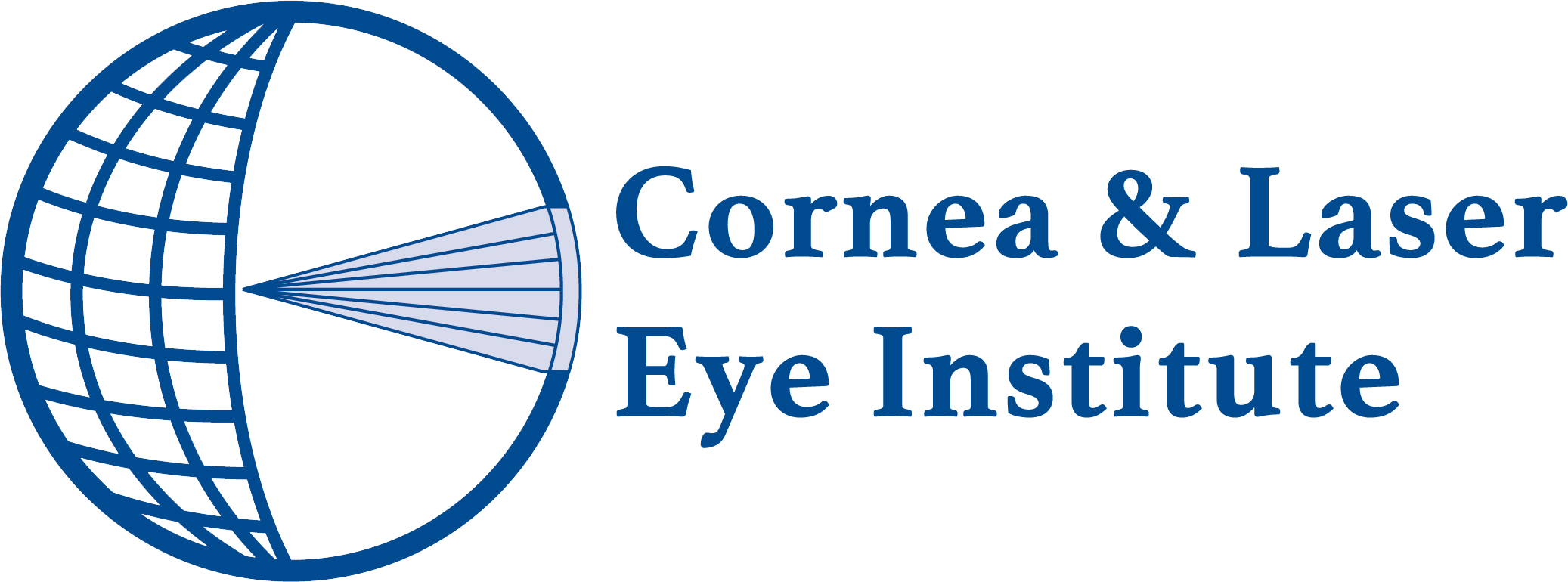
When it comes to vision correction, several options are available, including Ortho-K (orthokeratology) and LASIK (Laser-Assisted In-Situ Keratomileusis). Both of these techniques aim to improve your vision, but they differ in their approach and suitability for different individuals. Understanding the key differences between Ortho-K and LASIK can help you make an informed decision about which option is best for your vision correction needs.
Ortho-K is a non-surgical, reversible vision correction technique that uses specialized cornea retainers, similar to RGP contact lenses, to temporarily reshape the cornea, the clear front part of your eye. These lenses are worn overnight, and they gently mold the cornea into a more optimal shape, reducing or eliminating refractive errors like nearsightedness (myopia), farsightedness (hyperopia), and astigmatism. In the morning, you remove the retainers, and your vision remains clear throughout the day without the need for glasses or daytime contact lenses.
On the other hand, LASIK is a surgical procedure that uses a laser to permanently reshape the cornea. During the LASIK procedure, the surgeon uses a specialized laser to remove microscopic amounts of corneal tissue, altering the shape of the eye and correcting refractive errors. LASIK is a popular choice for many individuals seeking a long-term, glasses and contact lens free solution for correcting their vision.
The Benefits and Drawbacks of Ortho-K
Benefits of Ortho-K:
- Reversible: Ortho-K is a non-surgical, reversible procedure, meaning that if you decide to discontinue the treatment, your vision will return to its original state.
- Overnight Correction: Ortho-K lenses are worn overnight, providing you with clear vision during the day without the need for glasses or daytime contacts.
- Suitable for Active Lifestyles: Ortho-K is an excellent option for individuals with active lifestyles, as it eliminates the need for glasses or contact lenses during the day.
- Slows Myopia Progression: Research has shown that Ortho-K can slow the progression of myopia (nearsightedness) in children, making it a valuable option for parents seeking to manage their child’s vision development.
Drawbacks of Ortho-K:
- Ongoing Commitment: Ortho-K requires a long-term commitment, as you must wear the specialized lenses every night to maintain the desired vision correction.
- Potential for Discomfort: Some individuals may experience temporary discomfort or irritation when first adjusting to the Ortho-K lenses.
- Risk of Infection: Just like with all contact lenses, there is a risk of infection if hygiene, care, or retainer replacement is not followed.
- Treatment Regression: The treatment will regress throughout the day, for some it won’t last long enough and you will need to wear glasses with a partial prescription at the end of the day.
- Limited Correction Range: Ortho-K is primarily suitable for individuals with mild to moderate refractive errors, and it may not be as effective for those with higher prescriptions.
- Higher Cost: The cost of Ortho-K treatment, including the specialized retainers and ongoing monitoring, will be higher than the initial cost of LASIK surgery.
The Benefits and Drawbacks of LASIK
Benefits of LASIK:
- Permanent Correction: LASIK provides a permanent solution to vision problems, as the laser reshapes the cornea to correct refractive errors.
- Improved Visual Acuity: LASIK often results in excellent visual acuity, with many patients achieving 20/20 vision or better.
- Convenience: LASIK eliminates the need for glasses or contact lenses, providing you with clear vision throughout the day without any ongoing maintenance.
- Cost: LASIK is significantly more cost effective than all other vision correction options.
Drawbacks of LASIK:
- Surgical Procedure: LASIK is a surgical procedure, which may be a concern for some individuals who are hesitant about undergoing any kind of eye surgery.
- Potential Complications: As with any surgical procedure, there is a small risk of complications.
- Not Suitable for All Individuals: LASIK may not be suitable for individuals with certain eye conditions or thin corneas, which can limit the suitability of the procedure. However there are multiple surgical options to correct vision.
- Irreversible: LASIK is a permanent procedure.
How Ortho-K Works
Ortho-K, or orthokeratology, is a non-surgical vision correction technique that uses a specialized retainer to temporarily reshape the cornea. The process works as follows:
- Fitting the Ortho-K Lenses: Your eye care professional will perform a comprehensive eye examination and use advanced technology to measure the precise shape and curvature of your cornea. Based on these measurements, they will custom-fit you with Ortho-K lenses.
- Overnight Wear: You will wear the Ortho-K lenses overnight, typically for 6-8 hours. During this time, the lenses gently and gradually reshape the cornea, flattening the central area and steepening the peripheral areas.
- Daytime Vision Correction: In the morning, you remove the Ortho-K lenses, and your reshaped cornea provides you with clear, sharp vision throughout the day without the need for glasses or daytime contact lenses.
- Ongoing Maintenance: To maintain the desired vision correction, you must continue to wear the Ortho-K lenses every night. The cornea will gradually return to its original shape if you discontinue the treatment.
The Ortho-K process is reversible, meaning that if you decide to stop using the lenses, your vision will revert to its pre-treatment state.
How LASIK Works
LASIK is a surgical procedure that uses a specialized laser to permanently reshape the cornea, correcting refractive errors like nearsightedness, farsightedness, and astigmatism. The LASIK process typically involves the following steps:
- Pre-Operative Evaluation: Your LASIK surgeon will perform a comprehensive eye examination, including measurements of your cornea and refractive errors, to determine your suitability for the procedure.
- Corneal Flap Creation: The surgeon will use a specialized femtosecond laser to create a thin, hinged flap on the surface of your cornea.
- Corneal Reshaping: Using a specialized excimer laser the surgeon will remove microscopic amounts of corneal tissue, reshaping the cornea to correct your refractive errors.
- Flap Return: After the excimer laser treatment, the surgeon will carefully return the corneal flap to its original position, and it will naturally bond back to the underlying cornea tissue.
- Recovery and Healing: Following the LASIK procedure, you will experience a brief recovery period, during which your vision may be slightly blurred. However, most patients report significant improvements in their vision within 24-48 hours.
The LASIK procedure is considered permanent, as the changes made to the cornea are irreversible. While the results are generally excellent, there is a small risk of complications, which should be discussed with your LASIK surgeon.
Choosing between Ortho-K and LASIK: Factors to Consider
When deciding between Ortho-K and LASIK, there are several factors you should consider:
- Convenience: LASIK is a permanent solution that does not require daily maintenance making it a far more convenient option than Ortho-K
- Reversibility: If you are scared of surgery but still want a glasses and contact lens free lifestyle Ortho-K may be the better choice, as it is a non-surgical, reversible procedure.
- Refractive Error: Ortho-K is limited to correcting mild to moderate refractive errors, while LASIK can address a much wider range of prescriptions.
- Age and Eye Health: LASIK may be more suitable for older individuals over 20 years old with stable prescriptions. Ortho-K is approved for all ages. Children may benefit more from Ortho-K, as it can help slow the progression of myopia.
- Cost: The overall cost of Ortho-K, including the specialized retainers and ongoing monitoring, is higher than the cost of LASIK surgery.
- Personal Preference: Ultimately, the decision between Ortho-K and LASIK may come down to your personal preference and comfort level with a surgical or non-surgical approach.
Finding an Ortho-K Specialist
To ensure the best possible outcome with Ortho-K, it is essential to work with an experienced Ortho-K specialist. When searching for an Ortho-K provider, consider the following:
- Look for an eye care professional who has extensive experience in fitting and managing Ortho-K patients.
- Seek a FIAOMC practitioner. Practitioners with the designation of FIAOMC are fellows of the International Academy of Orthokeratology and Myopia Control, proving their expertise in Ortho-K.
- Ensure that the provider uses the latest technology and techniques for Ortho-K lens fitting and monitoring.
- Check if the provider has a dedicated Ortho-K clinic or specializes in this area of vision correction.
- Inquire about the provider’s approach to managing any potential complications or issues that may arise during Ortho-K treatment.
At CLEI, Dr. John D. Gelles heads up our specialty contact lens division. He is renowned globally for his expertise in specialty contact lens design, including Ortho-k lenses. Dr. Gelles has contributed extensively to the field of specialty contact lenses and his clinical work focuses on managing keratoconus, ocular surface and corneal disease, myopia, and postsurgical corneal conditions. All to say, when you visit CLEI to discuss orthokeratology as a vision correction option, we have the expertise to guide you through each step of the process and help you achieve optimal results.
Finding a LASIK Surgeon
When it comes to LASIK, it is crucial to work with a highly skilled and experienced surgeon. Here are some tips for finding the right LASIK provider:
- Look for a LASIK surgeon who is board-certified in ophthalmology and refractive surgery. They should also have extensive experience performing the procedure.
- Look for a FWCRS. Refractive Surgeons with the designation of FWRCS are fellows of the World College of Refractive Surgery and Vision Sciences, proving their expertise in refractive surgery.
- Ask about the surgeon’s success rates and patient satisfaction with LASIK outcomes.
- Inquire about the technology and techniques used by the surgeon, as advancements in LASIK technology can improve the precision and safety of the procedure.
- Ask about other procedures that you may be a candidate for, not all patients are candidates for LASIK. A true expert refractive surgeon performs multiple vision correction procedures, such as PRK, EVO ICL, RLE, not just LASIK.
- Consider the surgeon’s communication skills and how they address your concerns and questions about the LASIK process.
- Check if the surgeon has a dedicated LASIK clinic or center, as this may indicate a higher level of specialization and expertise.
- Ask about the surgeon’s approach to managing any potential complications or side effects that may occur after the LASIK procedure.
By selecting a highly skilled and experienced refractive surgeon, you can increase the likelihood of achieving your desired vision correction goals. Your sight is precious and your LASIK procedure should only be left in the hands of an expert. At the Cornea & Laser Eye Institute in New Jersey, Dr. Steven Greenstein and our expert team specializes in advanced vision correction, using state-of-the-art technology and providing an exceptional patient experience to enhance your quality of life through better vision. Dr. Greenstein is a true expert and has the ability to perform more than just LASIK and will determine which vision correction procedure is the best one for you and your individual needs. The Cornea & Laser Eye Institute has long been a leader in vision correction surgery, playing a pivotal role in the development and FDA approval of laser vision correction. Committed to innovation, we use the latest technology to deliver treatments that ensure the highest quality of care for our patients.
Conclusion: Making the Right Choice for Your Vision Correction Needs
When it comes to vision correction, both Ortho-K and LASIK offer unique advantages and disadvantages. If you’re unsure which vision correction option is best for you, schedule a consultation with the CLEI team, which is made up of both Ortho-K specialists and LASIK surgeons to discuss your options and find the solution that fits your unique needs. Take the first step towards clearer, sharper vision today!





